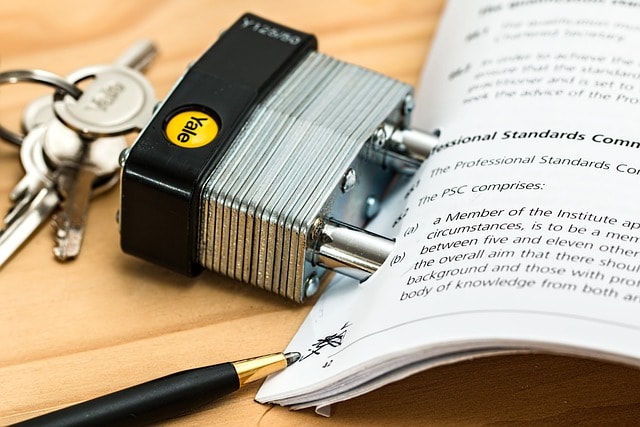Hire The Best Illinois Discrimination Lawyer
Fighting Workplace Discrimination in Illinois One Case at a Time
You walk into work ready to handle your day, not dodge subtle digs, unfair treatment, or flat-out bias. But when the people in charge make decisions based on your race, gender, religion, or any other part of your identity, it’s not “just how the world works.”
It’s discrimination. And it’s illegal.
At Punchwork Law, we help Illinois workers call discrimination what it is and do something about it. Whether you’re dealing with constant microaggressions or a full-blown hostile work environment, we’re here to listen, strategize, and go toe-to-toe with whoever thinks they’re above the law.
Want to talk about it? Schedule your free consultation with one of our employment discrimination attorneys today.
What Is Considered Workplace Discrimination in Illinois?
Workplace discrimination isn’t always easy to spot.
Sometimes it’s blatant, like being denied a job because of your accent or getting fired after announcing a pregnancy. But more often, it’s quiet and persistent: skipped promotions, different rules for different people, or being the last to know about advancement opportunities.
If any of this sounds familiar, take note: Illinois discrimination law is on your side.
The Illinois Human Rights Act (IHRA) prohibits employment discrimination of any kind. This law makes it illegal for employers to treat you differently based on:
- Race, color, or ethnicity
- Gender, gender identity, or sexual orientation
- Religion or religious beliefs
- National origin
- Disability (physical or mental)
- Age
- Pregnancy or childbirth
- Military or veteran status
- Marital status or family responsibilities
- Arrest records or expunged convictions
- Order of protection status (domestic violence survivors)
And this isn’t just limited to hiring or firing. Illinois law covers pay, promotions, job assignments, scheduling, training opportunities, and anything else that touches your work life.
Pro tip: Even if your employer has just one employee, the IHRA still applies. That’s one of the ways state law goes further than federal law.
Federal vs. Illinois Discrimination Law: What’s the Difference?
If you’re experiencing workplace harassment or discrimination, you’re likely protected under multiple laws at once. Here’s a breakdown of your rights:
Federal Law (like Title VII, ADA, ADEA, Civil Rights Act, etc.)
Laws like Title VII, the Americans with Disabilities Act, the Age Discrimination in Employment Act of 1967, the Civil Rights Act, and more are there to protect you from workplace discrimination.
- Applies to employers with 15+ employees
- Protects against discrimination based on race, ethnicity, religion, sex, national origin, disability, and age
- Enforced by the Equal Employment Opportunity Commission (EEOC)
- Deadline to file in Illinois: 300 days from the time of the last discriminatory act that happened
Illinois State Law (Illinois Human Rights Act)
- Covers almost all employees, even at small companies
- Protects even more categories (like marital status, arrest records, and more)
- Enforced by the Illinois Department of Human Rights (IDHR)
- As of 2025, it gives you up to 2 years to file a complaint
The best part? Filing with one agency often dual-files your complaint with the other, meaning both the IDHR and EEOC will receive your filing. That means you’re automatically covered under both state and federal law — no extra paperwork needed.
How to Handle Discrimination at Work (Without Losing Your Mind)
You’re not required to keep your head down and “ride it out.” If something feels off, start pushing back:
- Write it Down: Keep a timeline of what’s happening: dates, times, what was said, who was present, all of it. Forward yourself emails. Screenshot texts. Save performance reviews. The more details, the better.
- Speak Up (If It’s Safe): Many companies require you to report discrimination to HR before they legally get involved. If you feel safe, file an internal complaint in writing. If you don’t feel safe or you’ve already been retaliated against, skip to Step 3.
- File a Formal Complaint: To take legal action, you’ll need to file a charge with the IDHR or EEOC. You can do this on your own, but we strongly recommend working with a lawyer to avoid errors or missed opportunities.
- Talk to a Lawyer: Honestly, we think this step should come first. Because we’ll walk you through all of the above and tell you exactly how to document things, protect yourself, and what outcome to aim for.
Our Illinois discrimination law firm will handle the hard stuff, you just tell us what happened.
Why Hire an Illinois Discrimination Lawyer?
Let’s face it: Your company has lawyers. Their job is to protect the business, not you. You deserve someone in your corner, too.
When you hire Punchwork Law, you get:
- Legal firepower: We know Illinois discrimination law inside and out. We’ll make it work for you.
- Smart strategy: Not every case needs a courtroom. We’ll help you understand the process and the best path forward.
- Real talk: We tell you the truth, not just what you want to hear.
Even better? It’s free to talk to us. And in most discrimination cases, you won’t owe us a dime unless we win or settle your case.
Signs You Might Have an Employment Discrimination Claim
- You’re doing the same job as others, but getting paid less or overlooked for promotions.
- Your boss or coworkers regularly make jokes or comments about your identity.
- You’re the only one being disciplined for minor infractions.
- You were fired shortly after reporting harassment or asking for reasonable accommodations.
- You were denied a job, role, or raise for reasons that just don’t make sense.
- You suspect you are experiencing disability discrimination, gender discrimination, sexual harassment, age discrimination, or racial discrimination.
Not sure if it counts? Let’s talk it through. Schedule your free strategy session with an Illinois discrimination attorney and they’ll help you determine if you have a solid employment discrimination case.
Link Up with Other Workplace Rights
Discrimination rarely appears alone. It often coexists with retaliation, wrongful termination, or wage issues. Do you need to explore more?
If it’s happening at work, we probably handle it — and if we don’t, we’ll tell you who does.
Ready to Punch Back?
Discrimination is wrong and illegal, but you don’t have to navigate the system alone.
Call us. Text us. Or send us a message through the form on this page.
We’re here to listen, help, and if it comes to it, we’ll fight like hell for your dignity, your job, and your future.



